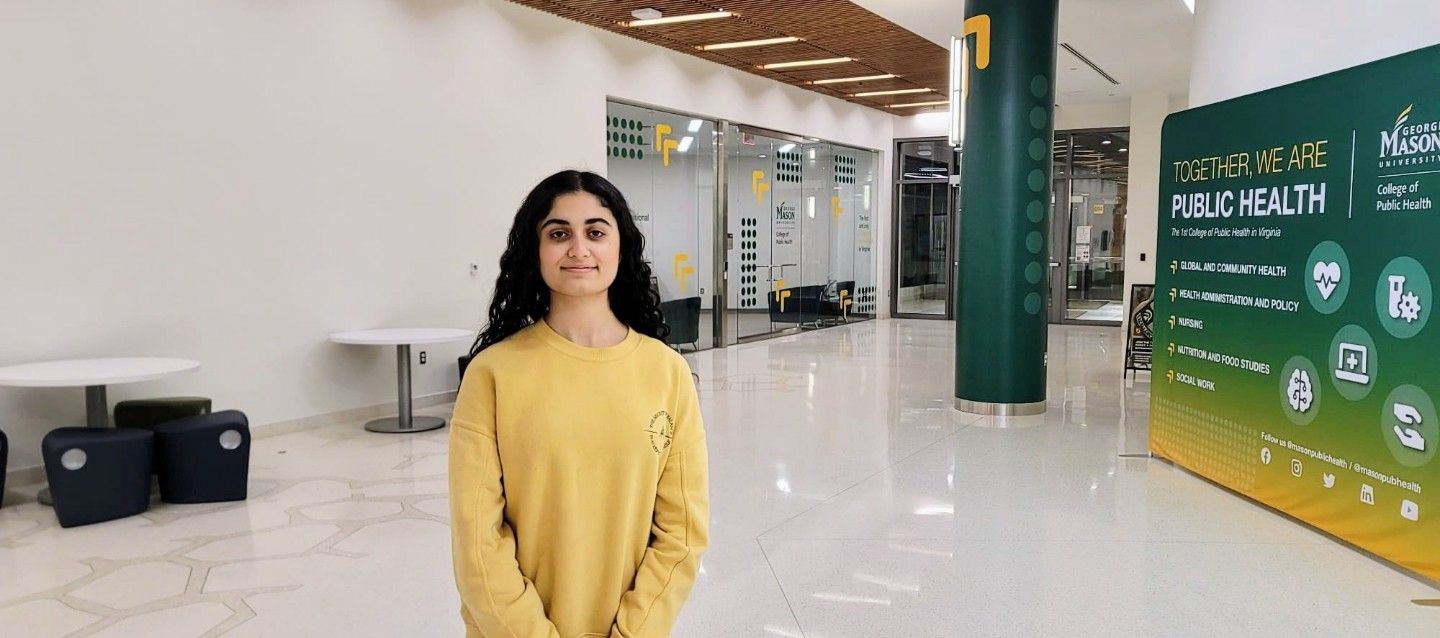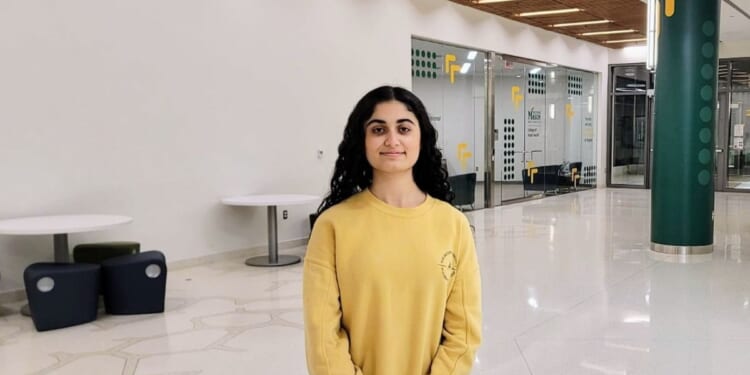
While many 16-year-olds are just beginning to figure out what they want to do for a living, Emma Tukhi of Burke, Virginia, already is contributing to her chosen profession: She has co-written a scientific research paper and is helping organize a global competition to encourage other teens to do the same.
“In my free time, I read medical research papers,” said Emma, a junior in the International Baccalaureate program at Robinson Secondary School in Fairfax. “Honestly, I don’t know anyone at my school who is interested in research.”
On social media, Emma helps lead a Discord group of more than 2,500 middle and high school students from around the globe who have pre-registered for the first-ever International Research Olympiad. While about half live in the U.S., large numbers also come from India, China and Brazil.
Besides recruiting participants online, the student-led olympiad departs from traditional high school science competitions by focusing on research methods rather than subject knowledge.
Rishab Jain, the Harvard University freshman who came up with the idea, said that better prepares teens for lucrative STEM (science, technology, engineering, mathematics) careers. He joined Emma for a video interview with The Washington Times.
“I think students doing research and engaging in projects helps them learn practical and analytical skills,” said Mr. Jain, 19, an aspiring computational neuroscience major. “That will result in better opportunities in college and higher-paying careers in the future.”
Emma’s mother, Leena Tukhi, also sat in on the interview and expressed excitement about what the olympiad could mean for Emma, who hopes to become a neurosurgeon.
“I think it’s a great thing, what they are doing,” Ms. Tukhi said, smiling. “Just to see her learning the research, that’s a big thing for me.”
Emma said she fell in love with science at age 4 and was designing software programs by the fourth grade. She became interested in the physical sciences during a freshman biology class at Robinson, where she participates in a Red Cross club.
“I remember learning about throat cancer in class and the science of how it spreads throughout the body,” the teenager said. “I’d lost a lot of relatives to cancer and that’s when I really became interested in how diseases can be cured, the science behind them, and the treatment.”
While visiting a science program at George Mason University last year, Emma met a doctoral student researching Lyme disease. That led her to analyze proteins from hundreds of patients to help identify the gene that causes the disease for a research paper, which she said will be published in a peer-reviewed journal.
Emma plans to apply to Harvard, the University of Virginia, Johns Hopkins, Princeton, and the University of California, Berkeley. She hopes her work in advertising the olympiad on social media will also give other students a leg up.
“I see medicine as a way for me to pursue my interest in science, but also as a service to humanity,” she said. “I just hope to make an impact in my community and wherever I begin my career.”
Meanwhile, Mr. Jain, recognized by Time magazine as a top 25 teen influencer in 2018, has relied heavily on his extensive social media channels to promote the olympiad. His YouTube channel has nearly 19,000 young followers.
“I think they look at the world and see these research discoveries, watch cool YouTube videos about black holes, get very interested in that and want to contribute in some small way,” he said. “They’re often told ‘no’ due to their age or the lack of resources in their area.”
Online registration for the olympiad opens Saturday with a fee of $25 per participant. The first round in March will involve an online examination that asks students to read and explain two to three research papers from various scientific disciplines.
The top 10% will advance to a semifinal exam that requires them to formulate research hypotheses and questions.
Mr. Jain hopes to host the top 20 students from the semifinals for a final round at Harvard in May. The three best students selected by a team of academic scientists will earn bragging rights in addition to bronze, silver and gold medals.
“We’re really looking to test a wide variety of skills, which is well beyond typical science fairs, which might ask what an amino acid does in the body,” he said.












